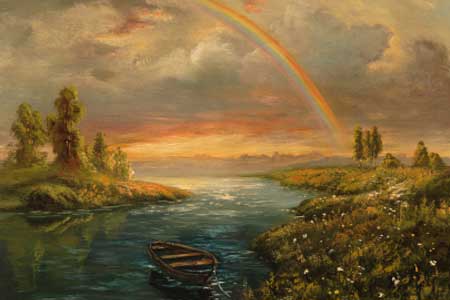The search for ancestors has many colourful lines of inquiry; the pot of gold is not necessarily where you think it is.
A mania obsessed the English-speaking world during the 19th-century. The locomotive? The steamship? The electric light? The telephone? None of the above, nor even the automobile. The craze obsessed tens of thousands of people, luring them to travel across continents and oceans. Some risked sailing around Cape Horn; others braved the Arctic.
Hernan Cortez and Francisco Pizarro could have named the grail that inspired quests. It was oro-gold-the magnet that drew multitudes to go to California, Australia and Yukon, hoping to grow wealthy. Closer to home, during the 1860s, Nova Scotia had its own gold rush, in places as scattered as Waverley and Tangier, Goldboro and Oldham, Moose River and The Ovens.

Very few of the thousands of hopeful prospectors struck it fabulously rich. In fact many times, it was the outfitters and the catering trades that grew wealthy, by providing goods and services that the panners and miners required. When optimism prevailed there were boom times at the diggings: hotels and saloons, lodges and the trappings of small towns appeared. Then, suddenly or agonizingly slowly, the dream died. Some men took part in two or several gold rushes before the lure of sudden wealth yielded to the realization that the quest had been an illusion. Still, it had been an adventure and for a few, it was worth it.
Today, the thousands of seekers number in the millions, and their digging takes place from the comfort of their chair in front of a computer screen. Not for them the perils of an ocean voyage, the icy blasts of winter, or the parched wastes of the Australian outback. In fact, they probably won't have to drive in an air-conditioned car as far as Mooseland, Goldenville or East Uniacke. Perhaps a trip to a graveyard or the archives will be necessary in order to gather up the tools for the search, the facts that will let the family historian graft another twig to the family tree. Like the "miner forty-niner" of the song, they set out in high hopes, their heads full of dreams about the happy ending to come.
There's much more to help the aspiring genealogist than there used to be. Computer technology has made it possible for all but the most disorganized person to keep track of their research findings. The Internet teems with searchable databases, and it's a rare province, state or nation that has not at least one published guidebook to researching in that jurisdiction.
Most people trace their ancestry should be able to follow family lines back a century and a half, unless an adoption, an illegitimacy or emigration intervenes to break the thread you're following. We come to realize that historical records are no more fair than is real life: the more prominent or wealthy a family was in the past, the greater the likelihood of being able to follow them into days of yore.
Families of western European origin living in North America can generally trace one or other lineage back to the boat. Some can reach into the former homeland armed with the name of the emigrant, a date of departure and an idea of the area from which that person came. For many that becomes the end of the road. The immigrant forebear was not nobility, or (s)he had a name that was simply too numerous: John Murphy from Ireland or Annie MacDonald from Scotland.
For various reasons, people end up with one or two family lines they can trace back 400 years, and others that end abruptly three or four generations ago. If after a reasonable amount of time and effort you must acknowledge that you've reached the end of the trail, you have to decide whether that is also the end of your rainbow-except you might not have found the gold you'd hoped for.
This is not a council of despair, but a challenge to do something different, which involves living relatives. Turn the situation around. There are lives-places of residence, lines of work, community participation and anecdotes-to be described to tell the tale of the family you did find. Discover and contact the descendants of your earliest ancestors, and let your research tell their story.
Your successors will thank you… assuming they can find you.
Dr. Terrence M. Punch is the resident genealogist on CBC Radio and editor of Genealogist's Handbook for Atlantic Canada Research.
